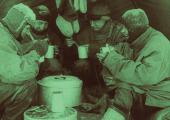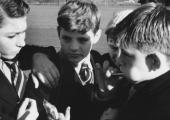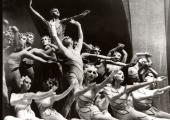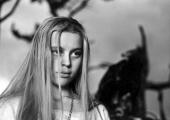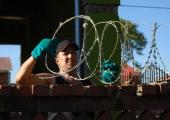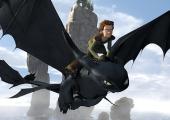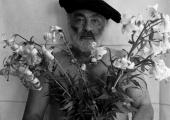DVD: The Miners' Hymns
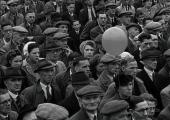
An elegy for the British mining community with a wonderful brass-drenched score
Bill Morrison’s film, mostly edited together from archive material, serves as an elegy to Britain's recent industrial past. The older footage has been handsomely restored, and often it’s only the clothes that give a sense of period. It focuses on the Durham coalfields, where the last mine closed in the early 1990s. There’s little left to show for it – the film is framed by aerial sequences where we search in vain for any trace of the industry. Collieries have been replaced by retail parks, artificial ski slopes and football stadia.


